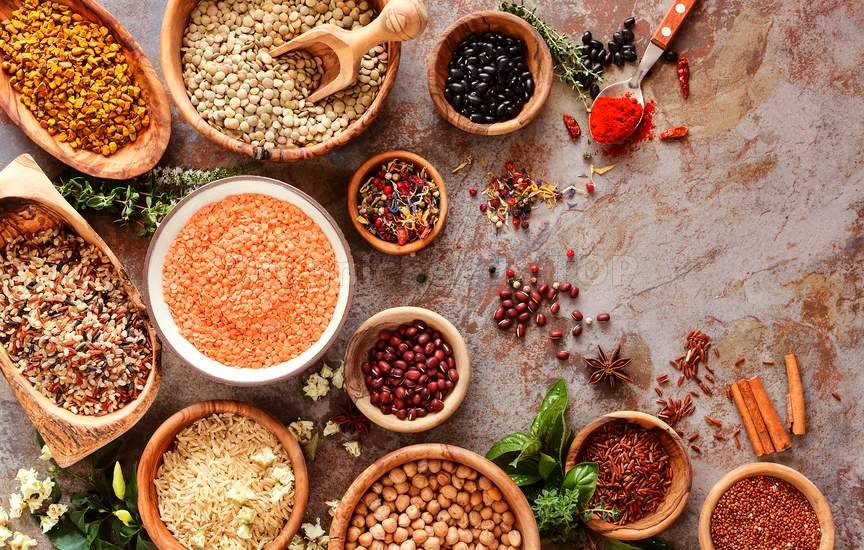
Non-GMO Seeds
Seeds labeled GMO — the acronym for “genetically modified organism” — result from one of the industry’s most controversial practices. GMO seeds are bred not in a garden but in a laboratory using modern biotechnology techniques like gene splicing. Scientists modify a seed’s DNA to ensure the resulting plant produces desired characteristics. OrganicSeeds does not produce or sell GMO seeds.
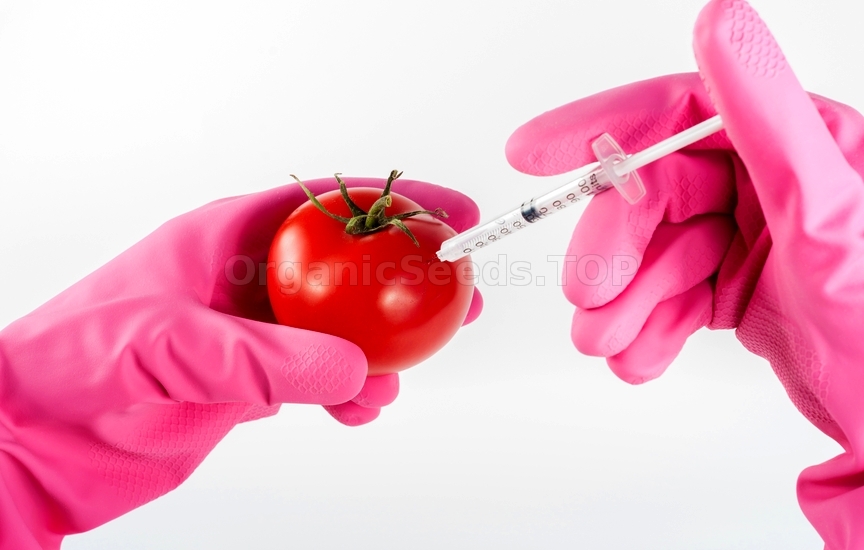
Non-GMO seeds are cultivated through pollination. They can be bred two different ways: as hybrid seeds or as open-pollinated seeds. The term “hybrid” refers to a plant variety developed through a specific, carefully controlled cross-pollination of two different parent plants to produce new traits that can’t be created by inbreeding two of the same plants. Hybrid varieties — also called F1 or “first-filial” hybrids — produce seeds that are not “true to type”, meaning that they do not conform to the known characteristics of a given plant variety.
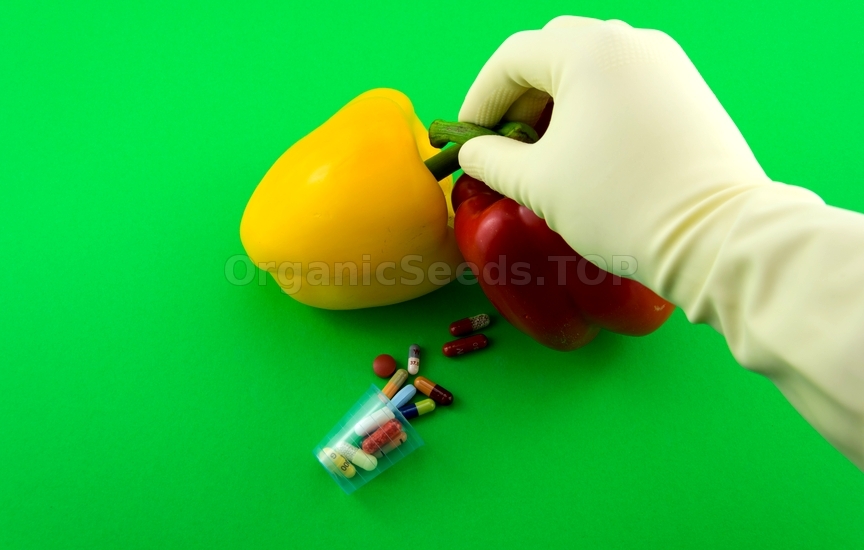
Open-pollinated seeds, by contrast, are produced from random pollination by wind, birds, insects, or other natural means. Gardeners who save seeds from open-pollinated plants can keep them genetically pure by isolating the plants from the pollen of other plants. They then save seeds from those plants to grow out the following season, confident that the seeds will possess the same characteristics as the parent plant, or grow “true to type.”
Hybrid Seeds
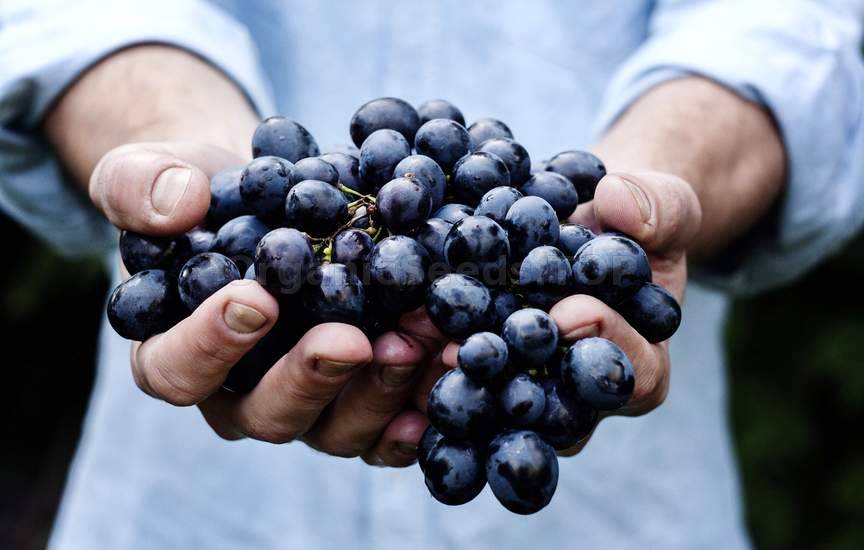
Hybridization of plants has greatly expanded our choices. Hybridists and common-or-garden yokels are constantly producing new hybrids, seemingly better than before. These are done under closed pollination conditions to keep away birds, bees and wind.
For example, we can take a strawberry plant which produces luscious strawberries, but sadly averages only two fruits per plant. But if we take the seeds of those strawberries and cross pollinate them with the seeds of a strawberry plant that has abundant fruit, but with average lusciousness. Then we have a new hybrid strawberry plant... with abundant, luscious fruit.
Ah would it be so easy! It can take up to many thousands and more attempts to get the characteristics we desire. Over generations of experiments, finally it can pay off, and a new hybrid is produced. Or maybe not, because this grand new hybrid somehow is too disease prone to stand up to general commercial conditions... so back to the greenhouse to go down another gene line.
Features such as fast growth, high yields, delicious taste, pest and disease resistant, frost proof and so on, have changed original wild plants into unrecognisable descendants that we rely on today to feed us.
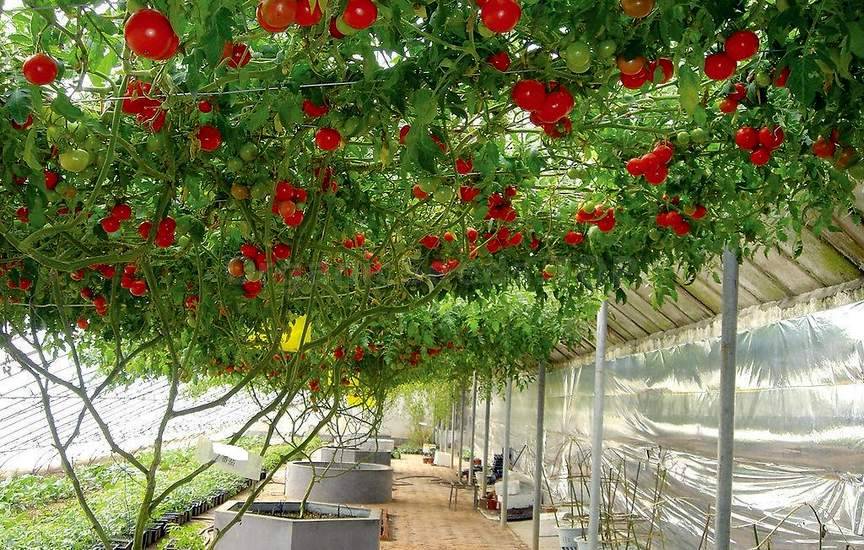
Other benefits of Seed Hybridization:
- Reduced pest and disease problems due to stronger vigour
- Withstands adversities, such as weather stresses
- Known outcomes in terms of uniformity
But in truth, most of the seed-saving gardeners I know, don't concern themselves about the odd maverick vegetable and just love saving seeds. The odds are more in our favour for pure reproduction. There's always the possibility of a super duper hybrid appearing!
Disadvantage of Hybrids:
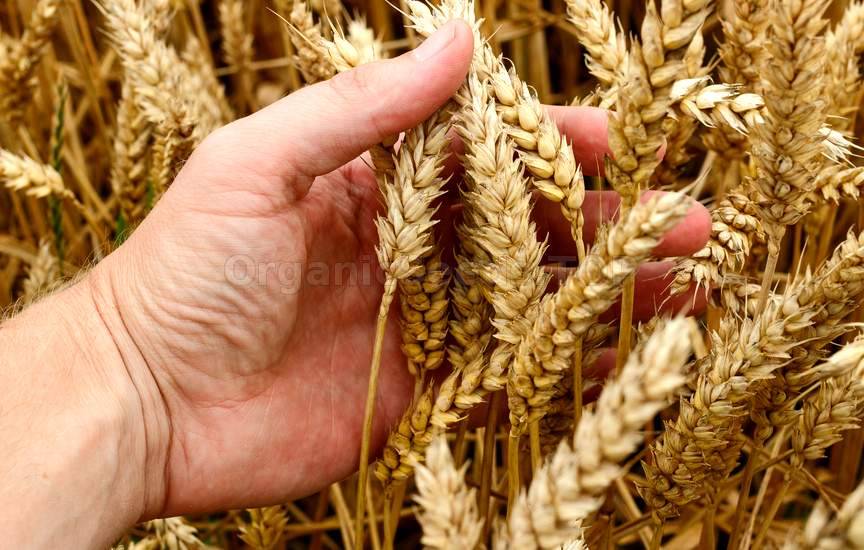
Very sadly the progress made with our edible plants, coupled with our food and buying habits has resulted in many cases in us, the public, having less choice!
Hybrids now fill up supermarket shelves. They are routinely bred with tough skins to stop damage; same shape and size for easy packing; less sweetness to repel insect, bird and animal damage: capable of being picked green and ripened in storage with gas... so we end up with less taste, less softness, less nutrition, and less choice of varieties and sizes.
With the newer hybrids, seeds saved will generally not breed true and revert to the parents' traits. You may be lucky and depending on the variety, you could save the seeds for another year or so and they will still be like your original seeds. But eventually you will have to buy new seeds if you want the same results — or with some plants you can propagate them from cuttings or from division.
Heirloom Seeds
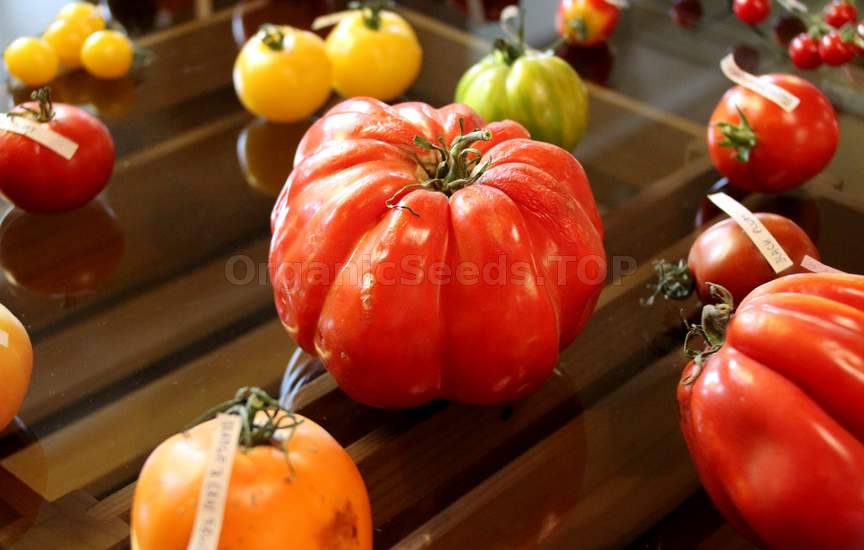
The term “heirloom” has increased in popularity in recent years, but what exactly does it mean? “Heirloom” describes a seed’s heritage, specifically a documented heritage of being passed down from generation to generation within a family or community. An heirloom variety of vegetable, fruit, or flower must be open-pollinated — or pollinated by insects, birds, wind, or other natural means — and “breed true,” or retain its original traits from one generation to the next.
Heirloom seeds constitute a critical part of the nation’s agricultural heritage and help ensure genetic diversity of plant species. You'll find hundreds of heirloom seed varieties in our nline store.
Why choose Heirloom Seeds
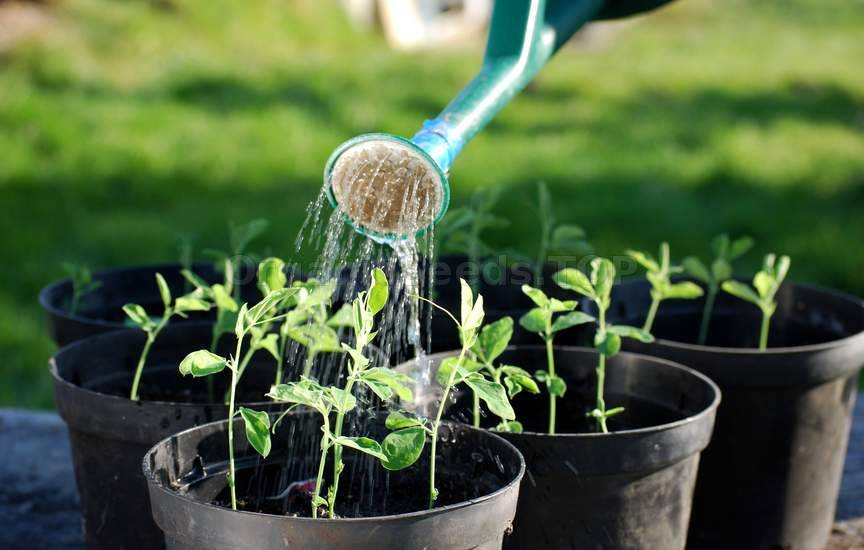
If you're not going to load your cart and hitch up Neddy to go off to the market at the other end of the country, then you don't need to grow tough, cardboardy, boring fruits and vegetables.
Grow what you like to eat and give away, or sell locally. Grow tender, sweet, tasty dudes that dribble down your chin, or snap with nuttiness, or ooze with tangy delight... and are good for you. You can safely save the seeds of heirlooms because they are all open pollinated, so this will save you money.
You can also localize your heirloom seeds because of their well-known adaptability. That means each year you select the best plants to save seeds from, and over time the slight variations will produce a slight strain difference that has adapted perfectly to your particular climate and conditions.
Heirloom seeds give you huge choices, different ripening times and lots of fun experimenting with all their quirky shapes, colours and characteristics.
Organic Seeds
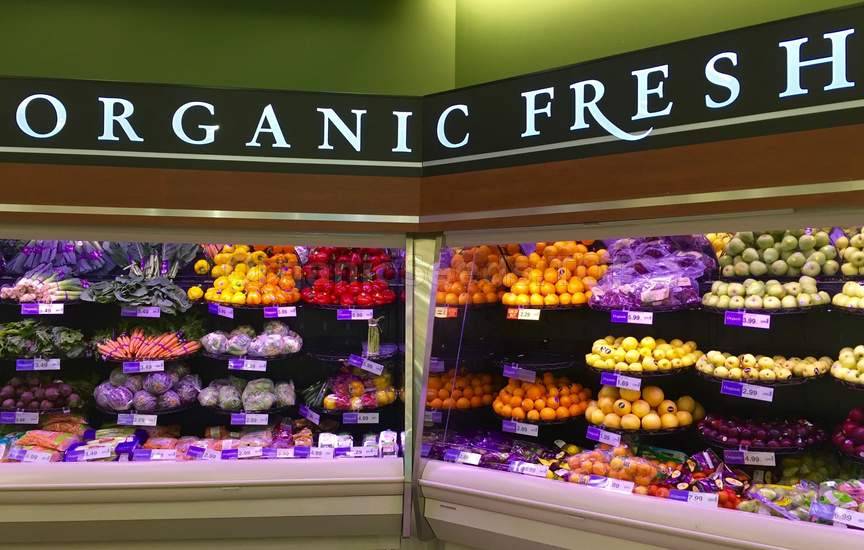
One of the most frequently used terms in seed labeling, “organic” refers to how plants and seeds are grown. Seeds labeled as organic must be nurtured and processed in strict accordance with the National Organic Program (NOP) standards. These standards foster cycling of resources, promote ecological balance, and conserve biodiversity while prohibiting the use of synthetic fertilizers and pesticides, irradiation, genetically engineered seeds and materials, and sewage sludge.
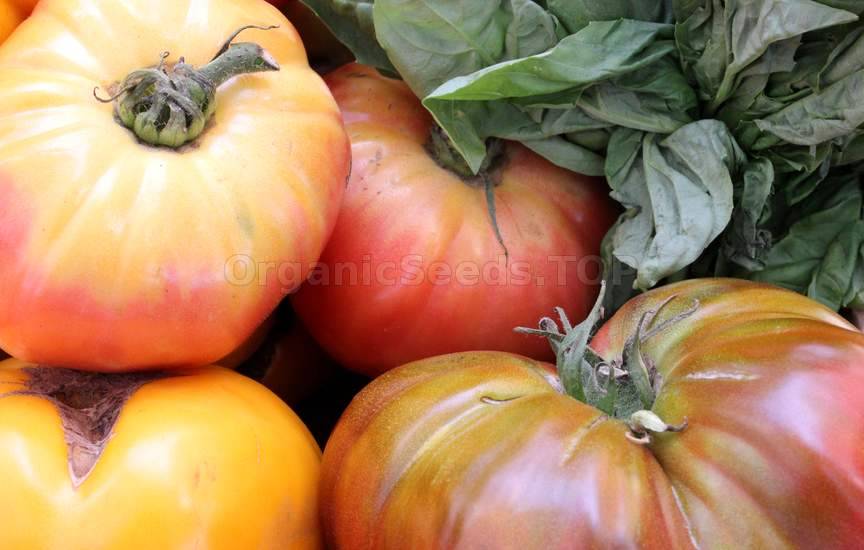
NOP guidelines stipulate that organic seed growers must plant organic seed unless it is not commercially available. (Untreated, conventional seed that does not contain genetically engineered traits is allowed when equivalent organic varieties are unavailable.) Seed produced by a certified organic grower is not exposed to prohibited chemicals throughout its growth in the field, nor during harvesting and processing.